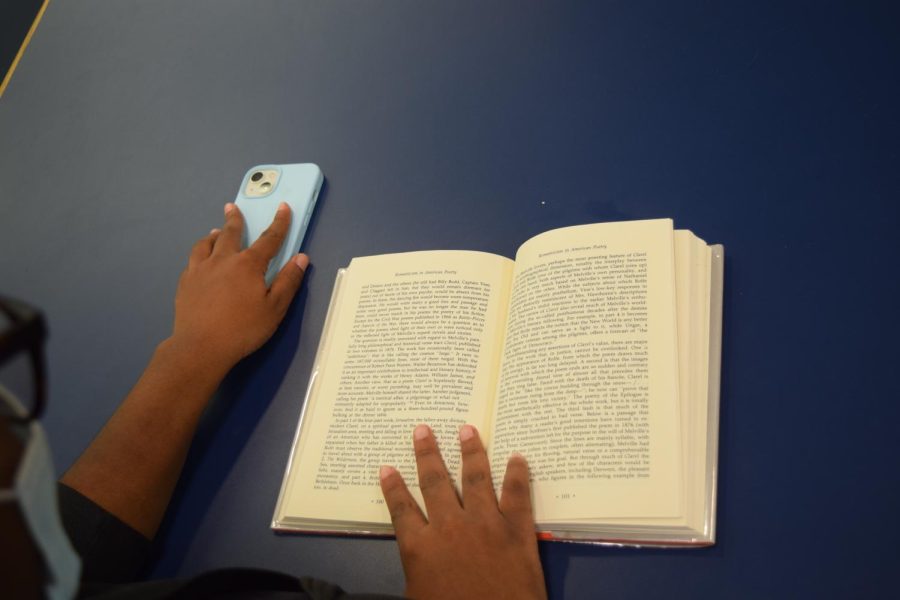Technology’s negative influence on reading books
Teenagers face the struggle of choosing between books and their smartphones.
February 24, 2022
People’s attention spans are quite literally lower than goldfish.
According to the USA’s National Center for Biotechnology Information at the US National Library of Medicine, the average attention span for a person is eight seconds, down from the average of 12 seconds it was in 2000. This makes the nine second attention span of a goldfish officially longer than that of the average human being.
De Montfort University Leicester’s Dr. Lee Hadlington held a study in 2015 to see how technology impacts people that were between the ages of 18 to 65. A total of 210 people were studied, and it was found that the more you are on the internet, the more likely you are to undergo cognitive failures. Some cognitive failures noticed were missing appointments, zoning out during conversations, and not being able to stay focused.
Technology is used more now than ever before thanks to the internet. According to Data Reportal, around 62.5 percent of the world is using the internet. That’s roughly 4.95 billion people. As people use technology and the internet, they are constantly clicking on different apps and scrolling through feeds.
According to Los Angeles Times High School Insider, results from a survey in 2016 showed that 40 percent of a randomized group of people checked their phones in the first five minutes of them waking up and 50 percent check their phones in the middle of the night. Dscout, a market researching platform, noticed that on average, Americans touch their phones 2,617 times daily in total.
A popular fast growing social media app called TikTok is an example of technology shortening teenagers, and many other aged people’s, attention spans. The app consists of a variety of fifteen second videos made by other people on the app. Most people like it because you don’t get bored of the videos due to the short length of the posts.
Junior Tessa McNeill downloaded TikTok after her friends recommended the app to her. She thinks that TikTok is entertaining and she even prefers it over television. “Depending on the show, a lot of time I just don’t have the time or attention span to watch an actual show,” she said.
The first step for a high schooler to not let technology shorten their attention span is to limit screen time. The more a person is on the phone, the more dependent they are on having it with them everywhere they go.
“The first thing is understanding how much you do rely on your phone and from there you can work out if you need to start reducing your reliance,” Dr. Sharon Horwood, lecturer at the School of Psychology at Deakin University, told The Guardian newspaper in 2018, “It’s not a case of fate or destiny. The long-term consequences of screen use are what we make them.”
In addition to this, people even have trouble reading books for more than a few minutes without picking up their phone or using another device. This brings up the question, is technology shortening people’s attention spans to the point that they are no longer capable of reading books?
Many teenagers nowadays face an inner struggle between picking up a book or picking up their phone. Even if they are already reading, the second they hear the buzz of a notification they automatically want to reach for their phones.
Stephen Podowski, a senior here at Decatur, believes that even though his reading habits have increased throughout the years, he does find himself reaching for his phone every now and then. When talking about how technology shortens your attention span, he mentioned the effects of apps like TikTok. Podowski says, “It conditioned me to want short and quick entertainment.”
Decatur junior Brooke Patton agrees that phones are a distraction while reading. Patton says, “I mostly get distracted while reading if my phone is right next to me. The slightest ring or vibration I immediately put down my book and look at my phone.”
This struggle is not only seen while reading books, but also while doing homework. Patton says, “I notice when I have my phone near me when I’m doing something like homework, I will put my homework down and just go on my phone even though I’m not done my homework.” She added, “I will stay on my phone for hours and not even realize that hours have passed by.”


